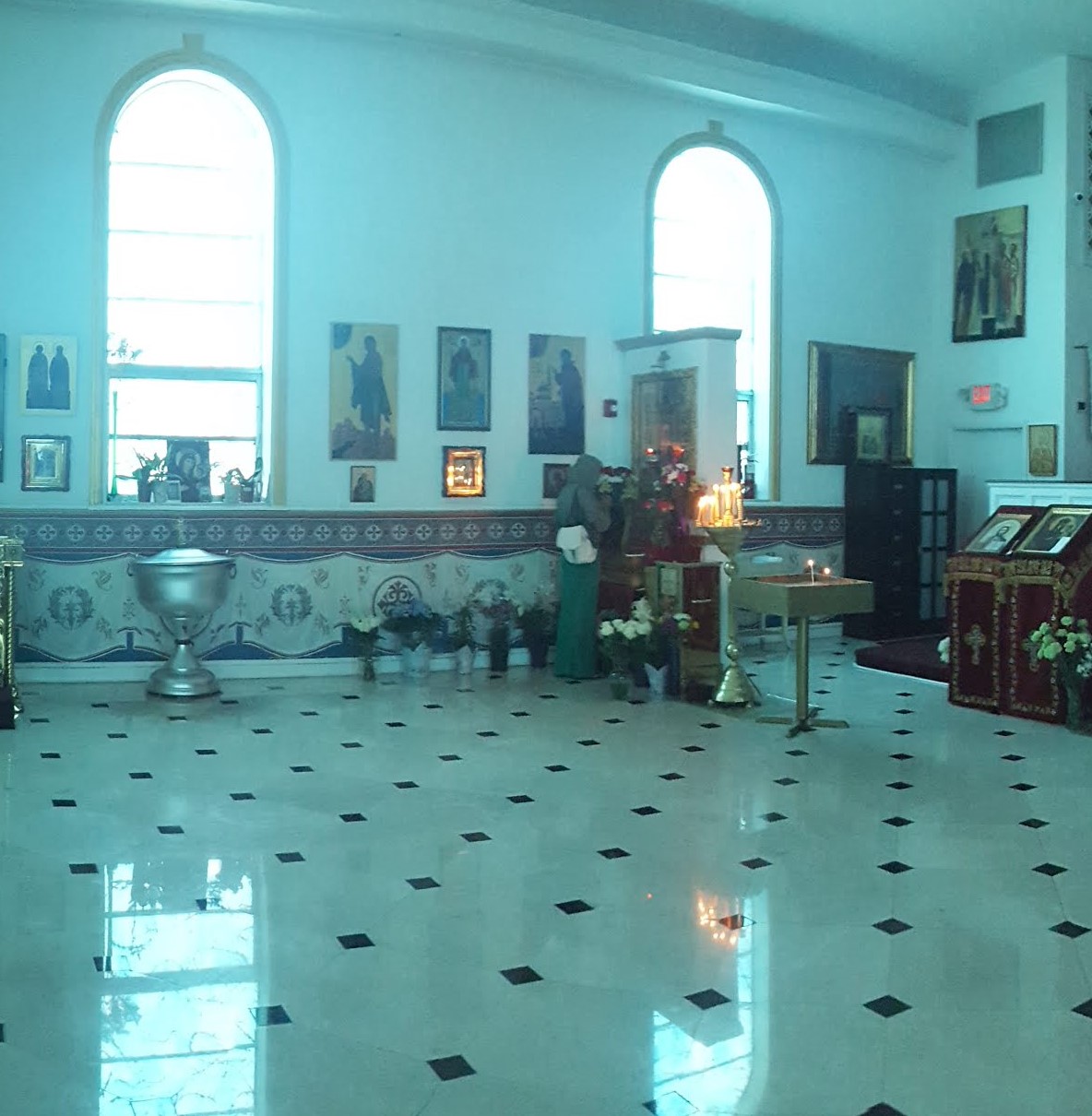The Power of Prayer
Posted by Jacob Luttio on May 21st 2020
Prayer is a powerful and personal thing. It may mean different things to different people, but it seems to be a near universal human trait; people pray (some don’t), regardless of their religious upbringing. Buddhists pray at a funeral and every so often so many days after the departing of a loved one [1]. Shinto practitioners bow before a shrine in the middle of nature. It’s as natural as speaking a language.
At his inauguration, Pope Francis met with other religious leaders in the Vatican; during this interfaith meeting he asked for prayer to be “a pastor in harmony with Christ’s heart”. Among “Jewish, Muslim, and Jain”, he asked for prayer. He “chose not to sit on any sort of throne or raised platform” [2], instead greeting his guests on common ground. This is exactly the form of attitude I find most helpful when praying with others; it is important to be open to commonality. Prayer then becomes not an appeal to authority but a shared experience.
Prayer focuses the mind and celebrates each tradition of faith. For a Catholic, there are innumerable prayers to choose from. “Pray without ceasing” (1 Thess 5:17) exhorts the apostle Paul. In the Catholic tradition this becomes easier as there is not only The Rosary, but countless prayers asking for the intercession of saints. A member of the faithful may have a devotion to St. Jude, for example, whose name she may have taken at the time of confirmation. St. Jude, the patron of desperate and lost causes. There are prayers to this saint and to others, often in the form of novenas, in order to ask for their help [3]. Prayer is multifaceted, with different prayers being appropriate for different times (e.g. Matins, Compline).
Prayer is often a communal or corporate action, with prayers before mealtime as a family or prayers said during church as a congregation. During a communal prayer, one often “leads” such as the pastor, celebrant, or family member, and others follow. In some traditions, communal prayer may be less organized; in a Pentecostal prayer gathering, leadership may come from any point in the room, more in the form of a gentle nudge than a sustained oratory. In this tradition, the Holy Spirit is the guiding force, as sustained murmurs throughout will ebb and flow in various stages of excitement. Other charismatic traditions will employ similar forms of prayer; I have many memories of standing with my extended family in a circle, taking turns leading in improvised prayer while others add their voices in affirmation, calling on the divine to act in personal affairs.
Charisms relating to prayer are by no means limited to protestant Christian denominations, however. The People of Praise movement is made up predominantly of Catholic members, although also present are “Lutherans, Episcopalians, Methodists, Pentecostals, Presbyterians and other denominational and nondenominational Christians” [4]. During gatherings, members may pray in exuberant glossolalia or be slain in the spirit; this latter phenomenon is rather parallel to the Hindu practice of darshan, which is meant to ‘behold the divine’ and in turn to be seen [5]; although Hinduism holds very different roots from Roman Catholicism and Pentecostalism it is striking how similar the outward form appears in this kind of prayer, participants lying flat on the ground as a sacred encounter, no longer tethered by normal modes of social interaction but being given space to witness something perhaps ubiquitous and intangible.
In the United Methodist Church, prayer (as a part of the larger act of worship) is considered a “corporate” act [6]. Corporate in this sense can be taken to mean a body of believers, united in Christ. The word corporate evokes in part the world of the mundane, which is excellent; prayer doesn’t have to be some esoteric act belonging to the religious elite: rather, an act that is both simple and shared among members of faith.

Prayer is also an intensely personal act. Unless praying out loud, other people don’t hear the words one offers up in prayer. As such, it can be private. For me, praying in private is often a way to organize thoughts in a positive manner. I’ve never come away from a genuine prayer session in private feeling worse than when I began; more frequently, getting to a mental place where I can begin to pray is a challenge; my mind clings to things which interfere with what I feel is genuine prayer. It takes a certain state of letting go: being right in an argument is one of the biggest personal blockers to prayer, for me. Sometimes relational hurt is hard to let go of; being wronged in some way, while often generating mental anguish, also places one at a sort of moral advantage: I’ve found this is counterproductive to prayer. It takes forgiveness, a sort of spiritual alchemy, to let go of wrongs done toward oneself (real or imagined). “Forgive us our trespasses as we forgive those who trespass against us”.
When approached in this manner, prayer is a humbling experience. It is an avenue toward positive change. In letting go of hurts there is a huge relief; In a recent Wall Street Journal article, Elizabeth Bernstein compares prayer to setting down a heavy backpack after carrying it for hours [7]. This is a good analogy, as when I pray I often will ask God to take care of a difficult matter or feeling. What I am really asking for is to be relieved of the mental burden of carrying such difficulties. Prayer can be very centering, especially during difficult times.
Prayer is also a way to prepare for challenges that may be ahead. Prayer focuses the mind; after praying with a specific intent toward a particular challenge, I quite frequently will feel more attuned to what it is I need to do in order to meet the challenge positively.
Praying for others can be a way to foster compassion. Whether it’s for a friend or enemy, praying for another human being is an excellent opportunity to take some time apart from my own needs and wants in order to empathize with another individual. The cautionary parable of the Pharisee and the tax collector is relevant to me, here: when praying for someone else, it’s important not to take any sort of moral high ground. “God, I thank You that I am not like other people: swindlers, unjust, adulterers, or even like this tax collector” is not a good prayer, but rather “God, be merciful to me, the sinner!” (Luke 18:11,13, NASB). As a society we live in relation with other people, as such our attitudes toward others are hugely important. The moment I begin to appropriate any sort of high ground in conversation is the moment when the lights become dim in the other person’s eyes. With this in mind, it’s obvious how in praying for others the attitude of “the sinner” cultivates a greater sense of compassion. One is not better than another simply because one prays. Rather, the attitude in which one prays may lead to a better relational understanding, or even emotional intelligence in navigating social situations.
In 2006 a decade-long study conducted by Harvard professor Herbert Benson concluded that “prayers offered by strangers had no effect on the recovery of people who were undergoing heart surgery” [8]. Prayers for others seemed to carry no benefit to those prayed for; in fact, the control group (those not prayed for) fared slightly better, although the authors attributed this to statistical randomness! It’s no wonder then, that some may be skeptical of prayer. It certainly raises many questions for the person other than whom is doing the praying: to whom is one praying? What sort of effects does one expect to see? What sort of religious expectations are there? To an atheist, it may seem like a form of mental illness: addressing a non-existent entity. Indeed, if all religion is empirically false, what’s the difference?
This is a difficult question, but there are plenty of anecdata showing prayer has a profound effect on mental wellbeing. Sebastian Roth and Bernd Schafer suggest that atheists might pray with the intent of “gaining self-knowledge or greater health” [9]. Alcoholics Anonymous co-founder Bill Willson seemed to adopt a similar approach: Step 11 is phrased “Sought through prayer and meditation to improve our conscious contact with God as we understood him, praying only for knowledge of His will for us and the power to carry that out”. God is purposefully left vaguely defined, the emphasis being on “conscious contact” [10]. There is also an emphasis on action in accordance with God’s will; I find this notable as praying for a certain specific outcome and praying to be in accordance with the divine are not the same. Many atheists do make use of A.A. and other 12 step programs, recovering through them. Perhaps, from an empirical perspective, the answer is then that prayer involves a conscious change in one’s mode of thinking with personally beneficial outcomes.
Aside from any personal benefit it may have, prayer takes on a rich context in faith tradition. It is wonderful to think of “the generations of people who have prayed before you” [7]. Some may find prayer the most meaningful within the structure of organized religion, while others may pray as an individual meeting with God, and still others may pray merely for health benefit. I am thankful to God that we have the gift of prayer available to us during this challenging time; the world becomes a much less lonely place in prayer.
[1] Luttio, M. (1995) Lutheran Liturgy in the Japanese Context: The JELC Funeral Rite (1893-1993). Notre Dame University, South Bend, Indiana.
[2] McElwee, J. (2013, March 20) Pope Francis meets with religious leaders, atheists, Jesuit superior. Retrieved from https://www.ncronline.org/blogs/ncr-today/pope-francis-meets-religious-leaders-atheists-jesuit-superior
[3] https://www.praywithme.com/st-jude-prayer.html
[4] https://peopleofpraise.org/
[5] Stefan, M. (2015, July 24) Retrieved from https://www.britannica.com/topic/darshan
[6] https://www.fumc-cs.org/what-do-we-believe
[7] Bernstein, E. (2020, May 18) The Science of Prayer. The Wall Street Journal .
[8] Carey, B. (2006, March 31) Long-Awaited Medical Study Questions the Power of Prayer. The New York Times.
[9] (Roth & Schafer, 2014) When Atheists Pray… Retrieved from https://www.religiousstudiesproject.com/2014/05/15/when-atheists-pray-by-sebastian-roth-and-bernd-schafer/
[10] (2001). Alcoholics Anonymous: the story of how many thousands of men and women have recovered from alcoholism . 4th ed. New York City: Alcoholics Anonymous World Services.

